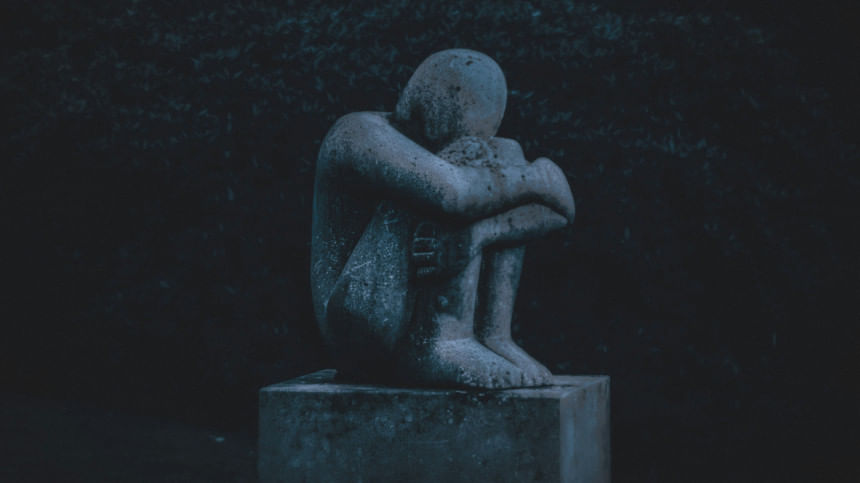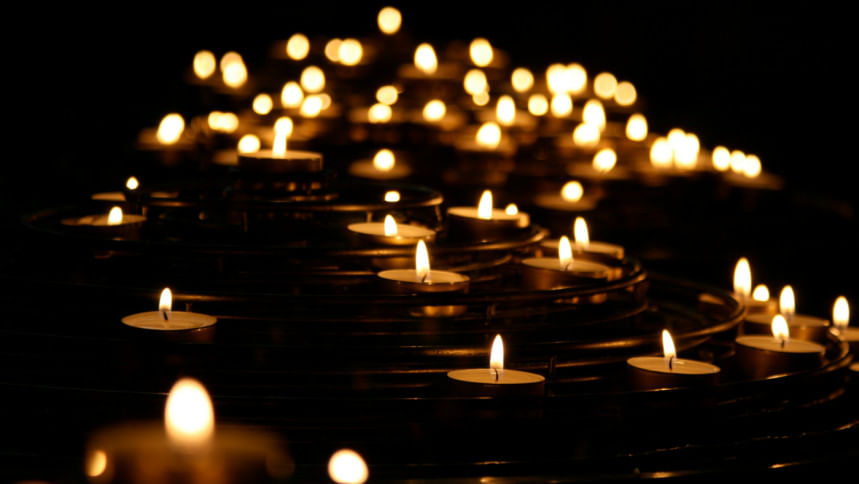Coping with grief: How a nation heals after a tragedy

The shock came mid-afternoon on an ordinary Monday, and for countless families in Dhaka, 21 July became unforgettable. A Bangladesh Air Force F-7 BGI aircraft crashed into Milestone School and College in Uttara, killing students, teachers, and the pilot.
The tragedy struck not just a school but the collective heart of a nation. You didn't have to be a parent at Milestone to feel your breath catch. As the headlines unfolded, so did a wave of shared sorrow. Grief, suddenly, was everywhere. It was not just a personal experience, but a public one.
And for many, it reopened older wounds. Losses long buried. Questions never asked.
But how do we cope when grief arrives uninvited, without rules, timelines, or logic? How do we move forward, not just as individuals but as families, as communities, as a country?
Grief is not a straight line
We are often taught that grief comes in five neat stages: denial, anger, bargaining, depression, acceptance. However, in real life, it's far messier. Grief loops back. It quiets down only to return months or even years later.
Dr Helal Uddin Ahmed, Professor of Child, Adolescent, and Family Psychiatry, explains that a "normal grief reaction" can last 6 to 8 weeks. "For example," he notes, "it's natural that school students will be on edge for a couple of weeks now. In fact, the entire nation is grieving. Every small mishap may trigger panic."
When those feelings persist longer, or begin to affect someone's ability to function, Acute Stress Disorder or Post Traumatic Stress Disorder (PTSD) may set in. That's when professional help becomes not just helpful, but essential.

Children grieve too
It's easy to overlook how deeply children are affected after a tragedy. Some may cry, others withdraw. Some might act out in ways that feel confusing to adults, but these behaviours are often a child's only way of expressing pain.
Ahmed cautions against dismissing their emotions with phrases like "It didn't happen to you" or "Just sleep it off." Instead, he urges adults to talk to children honestly, using age-appropriate language, and to allow space for questions, even uncomfortable ones.
For younger children, grief often comes out in play or drawing. Teenagers might show it through irritability, poor concentration, or guilt. What they need most is reassurance that their feelings are valid and that grief doesn't make them weak or strange.
"We live in a culture where we don't talk about the dead," he reflects. "That silence makes grief heavier, especially for children."
Adults are not immune
Adults, too, are often expected to "stay strong," especially in front of children or family. We are encouraged to move on, stay busy, and focus on the positive. However, unprocessed grief finds its own ways to surface through anxiety, fatigue, emotional numbness, or sudden bursts of sadness we cannot explain.
Healing, Dr Helal Ahmed stresses, doesn't mean forgetting. It means making space: for memories, for mourning, for the gradual return to life. It may mean letting go of the idea that time heals all wounds. Some losses stay with us, but they become part of who we are, not barriers to who we can become.
The grief we carry
Some of the hardest conversations about loss are the ones that never happen, especially within families. In many homes, grief becomes the quiet shadow in the corner of the room. No one speaks of the person who's gone. Everyone tries not to make it worse.
But silence can be just as painful as the grief itself. Saying a name, recalling a memory, admitting that something still hurts — these acts can become moments of connection, especially for children who may be too afraid to speak first.
Whether it's through prayer, photos, storytelling, or simple rituals, what matters most is the willingness to acknowledge the loss. To make space for grief without judgment.
The journey towards healing
Although modern life often isolates us, community still holds power, especially in times of collective pain. True healing happens not just in therapy rooms, but in neighbourhoods, classrooms, and workplaces that offer space for softness.
After the Milestone tragedy, grief didn't just ripple through families — it struck at our sense of safety. It exposed how fragile our mental health systems still are, and how urgently we need a culture that treats psychological wounds with the same care as physical ones.
That means destigmatising therapy. Normalising conversations around fear, sadness, and guilt. And understanding that it's okay to not be okay — for both children and adults.
Healing is not linear. It doesn't happen overnight. However, it does begin — in presence. In compassion. In the radical act of listening to ourselves and each other.

 For all latest news, follow The Daily Star's Google News channel.
For all latest news, follow The Daily Star's Google News channel. 








Comments